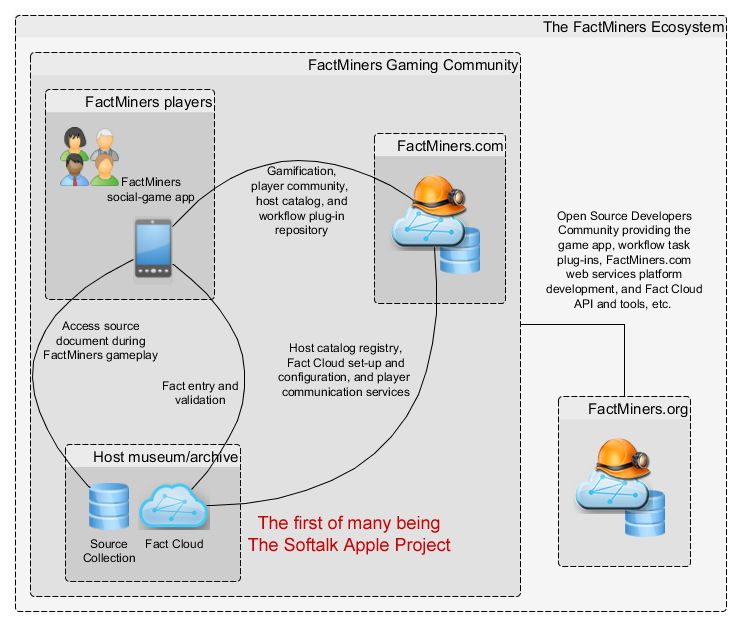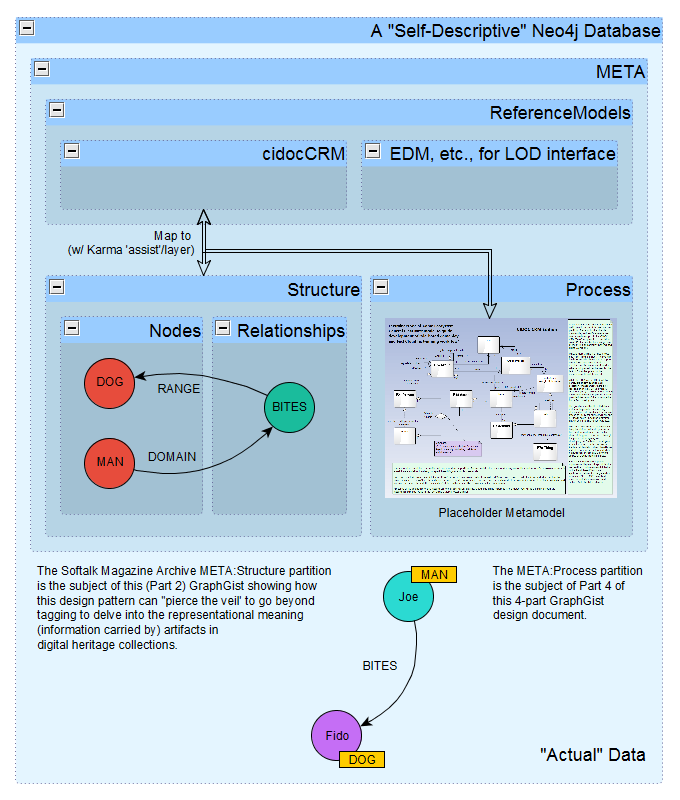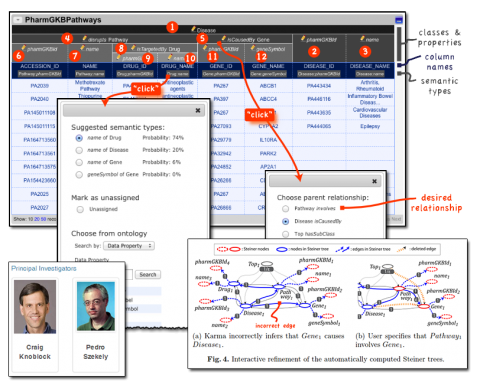One of the beauties of doing a grassroots Open Source community project is that we are not just open in the terms of our licensing, etc., but open to collaboration and incorporation through sharing both ideas and code. This is why we were ecstatic to learn about Karma.
Karma is an amazing Open Source "multilingual" ontology-aware cross-model smart-mapper providing "Rosetta Stone"-like powers to users coping with the ever-shifting publication of Linked Open Data (LOD). Karma is the evolving brilliant work from the incredible team of researcher-makers led by Craig Knoblock and Pedro Szekely of the Information Sciences Institute at the University of Southern California.
If we are lucky – because this would be an incredibly difficult, if not impossible, piece of work to duplicate as a subproject within FactMiners itself – Karma will handle this critical "LOD-switchboard" service as a component of the technology stack for the FactMiners social-game ecosystem. (The Karma codebase is surely going to inform the design of, if not directly contribute as an included component to, the FactMiners Fact Cloud Wizard.)
I could go on and on about the incredible work the Karma folks have done, but as seeing is believing, please watch and marvel at this demonstration:
Note: Karma is envisioned and implemented as a much more general data integration tool than the specific use case that excites us. This is an incredible resource for anyone needing "Rosetta Stone"-like features for both data integration and new model generation. All that said, we're incredibly thankful that they are doing such a great service to the exploding Linked Open Data (LOD) World of which cultural heritage repositories of Libraries, Archives, and Museums (LAM) are among the most "explosive." This exploding LAM/LOD World is also a virtually limitless expanse of prospective FactMiners' playgrounds.
Why FactMiners Loves Karma

A core idea of the FactMiners social-gaming platform is that the FactMiners gameplay produces a by-product which is its collection of Fact Clouds. At their core – and we skim momentarily into just-enough implementation territory – FactMiners Fact Clouds are Neo4j graph databases with an embedded metamodel subgraph providing a rich and extensible "self-descriptive" resource that describes and validates the "actual" data in the Fact Cloud database. In other words, we have a very "civilized" inner-world where each Fact Cloud will be a remarkably expressive datastore of semantically-rich, queriable, discoverable, analytically viewable "facts."

No matter how organized and accessible our Fact Clouds might be internally, responsibly putting these new data resources on-line through LOD publication is itself a daunting and ever-evolving challenge. LOD publishers – which FactMiners Fact Cloud creators will very likely be – need a "smart switchboard" to handle the "semantic pipes" feeding in and out of their semantically-rich datastores, that is, FactMiners Fact Clouds in our case. This daunting task is the exact thing that these incredible research scientists have tackled in birthing and nurturing Karma. The fact that this resource is an Open Source project rather than an enterprise-scaled and priced not-for-you technology is remarkable and greatly appreciated.
We'll keep you abreast of our progress exploring the remarkable resource of Karma. In closing, I'd like to thank Robert Stein, Deputy Director of the Dallas Museum of Art and a Director of the Museum Computer Network, for the referral and introduction to Pedro Szekely. I am looking forward to a planned chat with Pedro after the current USC semester settles into a dull roar.
So, bottom line, Karma is awesome. Hey, www.Structr.org devs... you are SO going to like what this can do for the FactMiners/Structr platform! :D --Jim--

